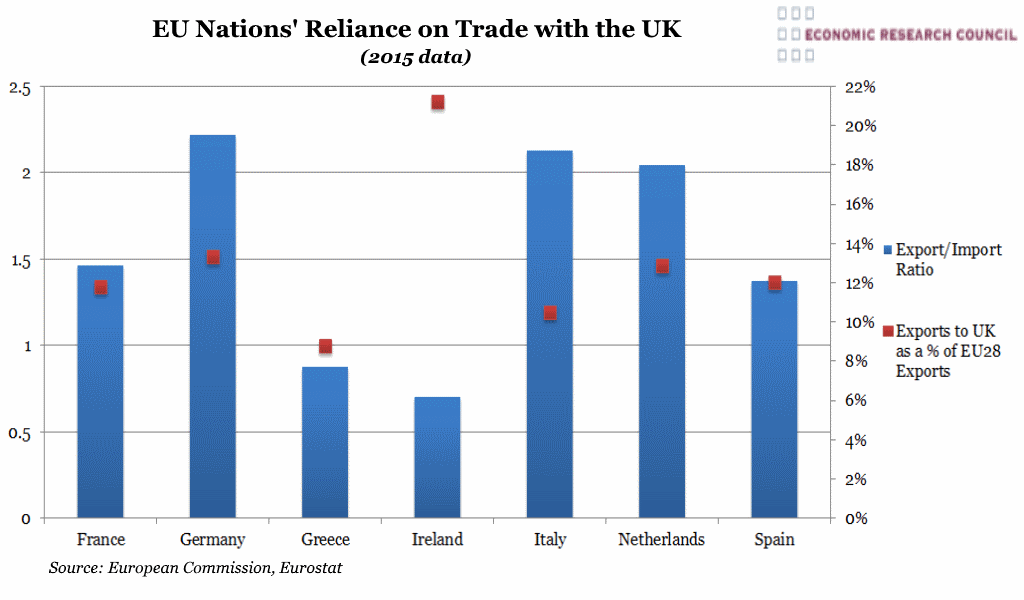Week 41, 2016: EU Nations' Reliance on Trade with the UK
Summary: The chart shows some aspect of each nation’s position on trade with the UK in the run up to Article 50 negotiations with access to the single market being the key issue. Theoretically, countries with a greater reliance on the UK for exports could (or should!) take a softer stance on Brexit negotiations, in order to safeguard these trade links. Where the export/import ratio increases; this pressure to achieve favourable terms should be compounded.
What does the chart show? The blue bars show the export/import ratio of each nation. Values above 1 denote that the country is a net exporter to the UK, and values below 1 show that the country is a net importer from the UK (of the nations shown, only Greece and Ireland are in this category). The red dots show each country's exports to the UK as a % of their total exports to EU28 countries, so higher values therefore signify a greater reliance on the UK trade in their dealings with other EU nations. The data represents trade in goods only (not services) and is from 2015.
Why is the chart interesting?
The chart shows that the key European nations individually have a very significant reliance on trade with the UK, with five of the key players doing over a tenth of all their export trade in Europe with the UK. What is also underlined is that, unless a united front from the EU states is shown in negotiations, Britain has serious clout with each of them through the sheer scale of its buying power. In addition, the graph only displays trade in goods not services, which might increase EU state’s reliance on Britain yet further.
There has been much speculation on the tone Article 50 negotiations are likely to take, not helped by entrenched ideological positions. We have seen firm and unequivocal comments from some ministers in EU member states who are taking a decisive ‘all or nothing’ stance. This toughening of tone stands in contrast to early conciliatory statements in the days that followed the result. On the other side, the self-assured attitude of some members of the British government, particularly Johnson and Gove, stems from their confidence in the UK’s strength based on the EU’s reliance on UK trade.
What the chart illustrates well is that for the key states in Europe, these negotiations are about far more than trade, indeed they may well allow their economies to take a hit for the longevity of the political union.





 Thursday, October 13, 2016 at 11:42AM
Thursday, October 13, 2016 at 11:42AM